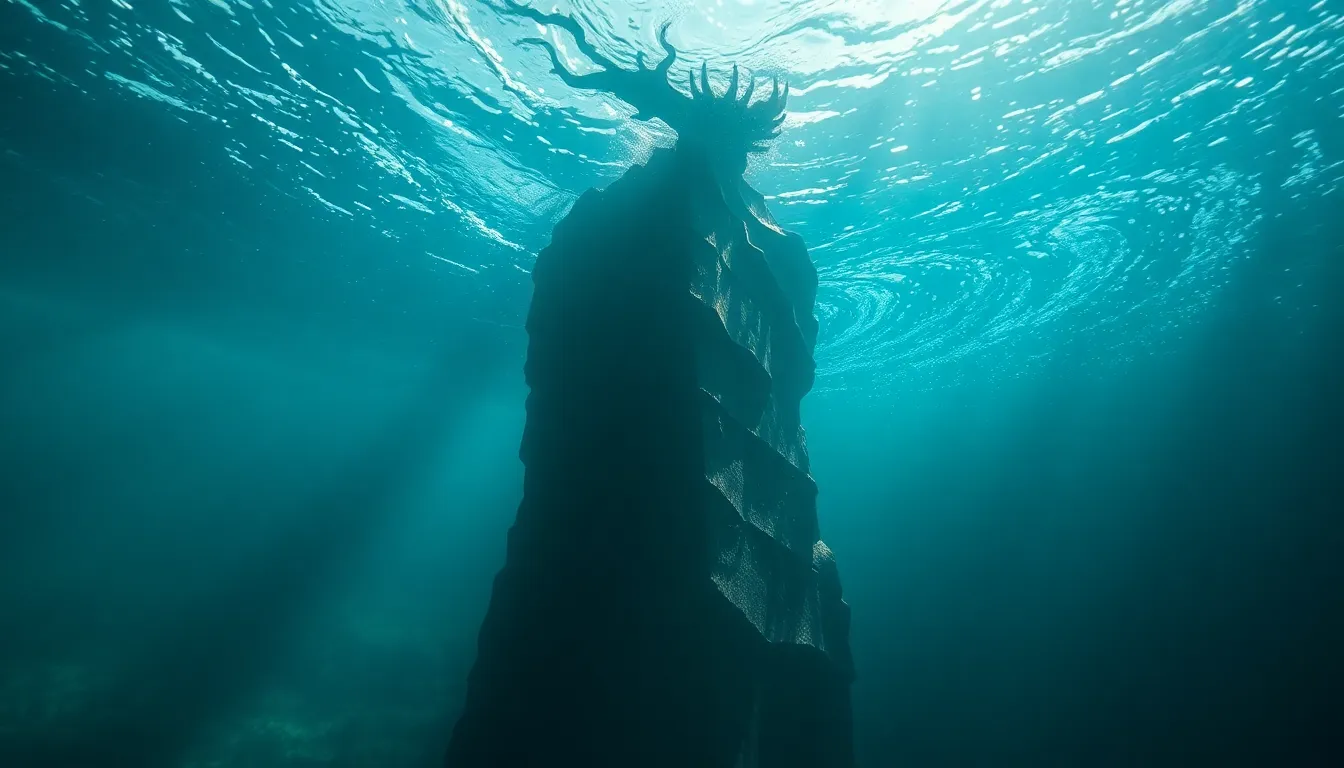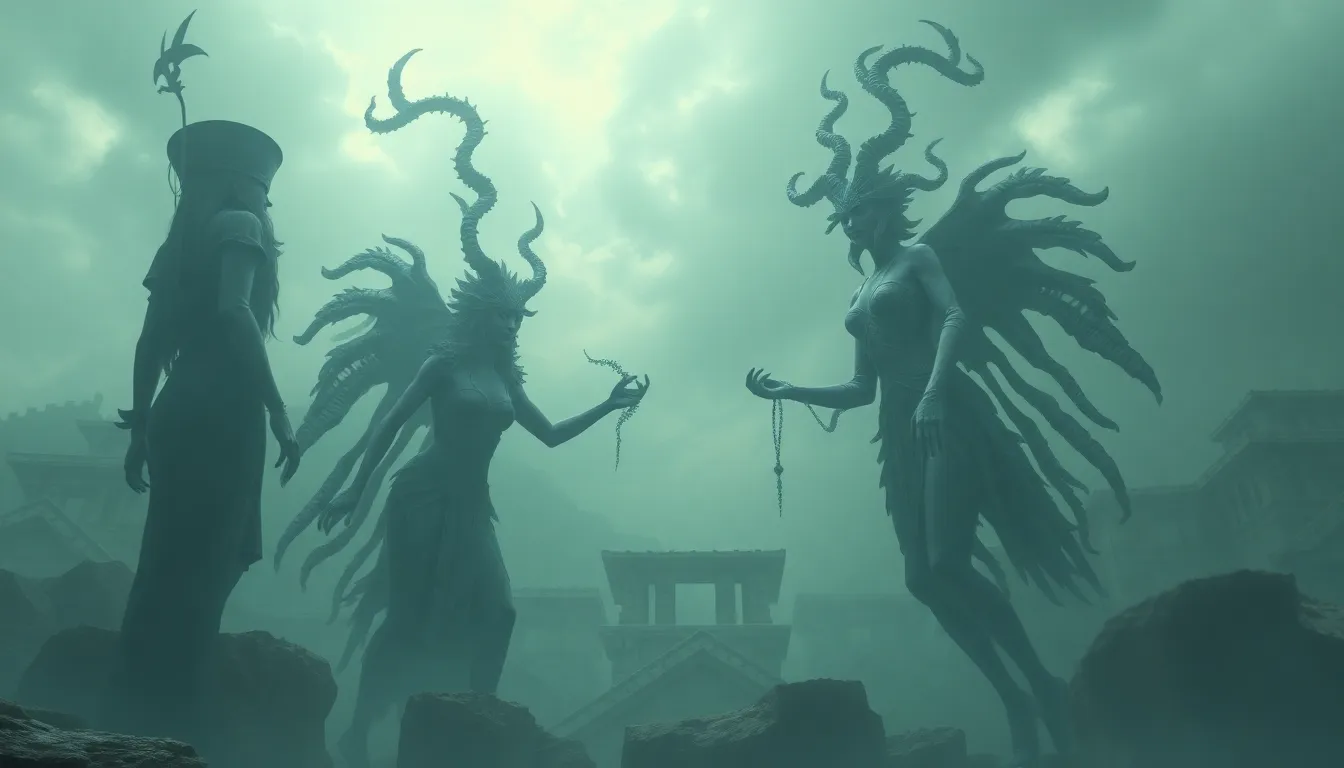Unveiling the Secrets of Atlantis: The Lost Kingdom Beneath the Waves
Introduction to Atlantis: Myth or Reality?
The legend of Atlantis has captivated the imagination of countless generations, sparking debates over its existence and location. This mythical island, described as a powerful and advanced civilization, is said to have sunk into the ocean in a single day and night of misfortune. The origins of this myth can be traced back to ancient texts, primarily the works of the philosopher Plato, who introduced Atlantis to the world through his dialogues.
Throughout history, Atlantis has been interpreted in various ways, serving as a symbol of lost wisdom and a warning against the dangers of hubris. Today, the fascination with Atlantis continues in modern culture, influencing literature, film, and art, and igniting the curiosity of explorers and historians alike.
Plato’s Account: The First Mention of Atlantis
Plato provides the earliest known account of Atlantis in his dialogues, Timaeus and Critias. In these works, he describes Atlantis as a powerful empire located beyond the “Pillars of Hercules,” which is now known as the Strait of Gibraltar. According to Plato, Atlantis was a large island with a rich landscape, advanced technology, and a well-organized society.
The key characteristics of Atlantis include:
- A highly advanced civilization with impressive architectural feats.
- A central city surrounded by concentric rings of water and land.
- A society that enjoyed prosperity, but eventually fell into moral decline.
The philosophical implications of Atlantis’ story extend beyond its geographical claims. Plato used the allegory of Atlantis to convey moral lessons about the dangers of excessive pride and the need for balance in society.
Theories on the Location of Atlantis
Over the centuries, numerous theories have emerged regarding the potential location of Atlantis. Some of the most proposed sites include:
- Mediterranean: Many researchers suggest that the island of Santorini, with its volcanic history, could be linked to the Atlantis myth.
- Caribbean: Some theories posit that Atlantis was located in the Bahamas, particularly around the Bimini Road site.
- Antarctica: A more fringe theory suggests that the continent of Antarctica was once a lush landmass before being covered by ice.
Geological and archaeological evidence has been analyzed to support these theories, though none have conclusively proven the existence of Atlantis. Moreover, underwater exploration technologies, such as sonar mapping and submersibles, have opened new frontiers in the search for the lost kingdom.
Archaeological Discoveries: Evidence of Advanced Civilizations
While Atlantis itself remains elusive, several archaeological sites offer insights into ancient civilizations that share similarities with the myth. Notable sites include:
- Knossos: The Minoan civilization on Crete, known for its advanced architecture and art, has been linked to the Atlantis narrative.
- Pyramids of Egypt: The technological advancements of ancient Egypt, including pyramid construction, reflect the kind of grandeur attributed to Atlantis.
- Indus Valley Civilization: This civilization exhibited advanced urban planning and sanitation systems, drawing parallels to the organized society of Atlantis.
These discoveries have significantly impacted our understanding of human history, revealing that advanced cultures existed long before the classical era, contributing to the ongoing debate about the historical accuracy of the Atlantis story.
Natural Disasters and the Fate of Atlantis
Theories surrounding the potential downfall of Atlantis often involve natural disasters. Possible cataclysms include:
- Volcanic Activity: The eruption of Santorini is one of the most cited examples of a natural disaster that could have inspired the Atlantis myth.
- Tsunamis: Massive tidal waves could have submerged coastal cities, aligning with the narrative of Atlantis sinking into the ocean.
- Climate Change: Shifts in climate could have led to resource shortages, contributing to societal collapse.
Case studies of other ancient civilizations, such as the Minoans and the Mayans, illustrate how natural disasters can lead to the decline of advanced societies, reinforcing the idea that the story of Atlantis may be rooted in historical truth.
Cultural Impact of the Atlantis Legend
The myth of Atlantis has left an indelible mark on various aspects of culture. Its influence can be seen in:
- Literature: Authors like Jules Verne and H.P. Lovecraft have drawn inspiration from Atlantis, weaving it into their narratives.
- Art: The depiction of Atlantis has inspired countless artists, with representations ranging from idyllic utopias to haunting ruins.
- Film: Movies such as Disney’s Atlantis: The Lost Empire and others have brought the legend to life, captivating new audiences.
The symbolic meanings of Atlantis often reflect themes of lost knowledge, moral decline, and the quest for utopia, making it a recurrent motif in popular culture.
Scientific Endeavors: Searching for Atlantis Today
Modern technology has revolutionized the search for Atlantis. Key advancements include:
- Sonar Mapping: This technology allows researchers to survey the ocean floor for submerged structures.
- Remote Operated Vehicles (ROVs): ROVs enable scientists to explore deep-sea environments where traditional diving is impossible.
- Geophysical Surveys: Techniques such as ground-penetrating radar help identify potential archaeological sites beneath the ocean.
Notable expeditions, including those by oceanographers and archaeologists, have aimed to uncover remnants of ancient civilizations, with the hope that they may uncover clues related to Atlantis.
The Philosophical and Ethical Dimensions of Atlantis
The story of Atlantis offers profound moral lessons. Key themes include:
- Hubris: The downfall of Atlantis serves as a cautionary tale about the dangers of pride and overreaching ambition.
- Civilization: The rise and fall of Atlantis prompt reflections on the sustainability and ethics of modern societies.
- Environmental Stewardship: The narrative encourages a discourse on humanity’s relationship with nature and the consequences of neglecting it.
These themes remain relevant in contemporary society, as we face global challenges that echo the moral lessons of the Atlantis myth.
Modern Interpretations and Adaptations of the Atlantis Myth
Various cultures have reinterpreted the Atlantis narrative, adapting it to fit their historical contexts. The influence of the Atlantis legend is evident in:
- New-age Beliefs: Some view Atlantis as a symbol of spiritual enlightenment and lost wisdom.
- Alternative Histories: The myth has spurred theories about ancient advanced technologies and civilizations.
Perspectives from historians, archaeologists, and mythologists continue to shape our understanding of Atlantis, as each field offers unique insights into this enduring legend.
Conclusion: The Legacy of Atlantis in the 21st Century
The legacy of Atlantis remains a powerful force in human culture and thought. As a symbol of lost potential and cautionary wisdom, Atlantis continues to inspire exploration, philosophical inquiry, and artistic expression. The search for this lost kingdom beneath the waves represents humanity’s enduring quest for understanding our past, our present, and the future we wish to create. Whether as a myth or a historical reality, Atlantis serves as a reminder of the fragility of civilization and the importance of cherishing our shared heritage.



